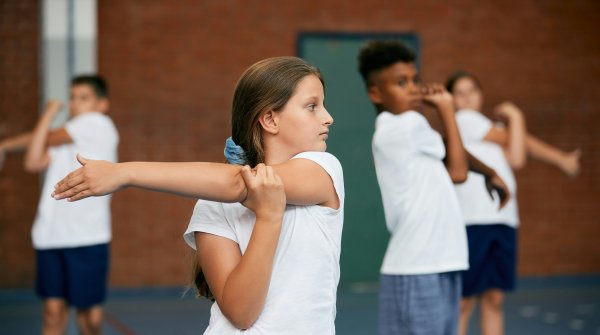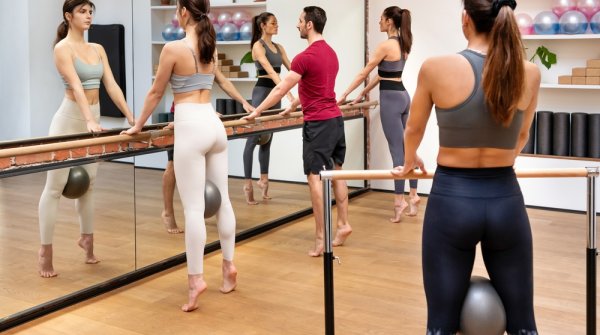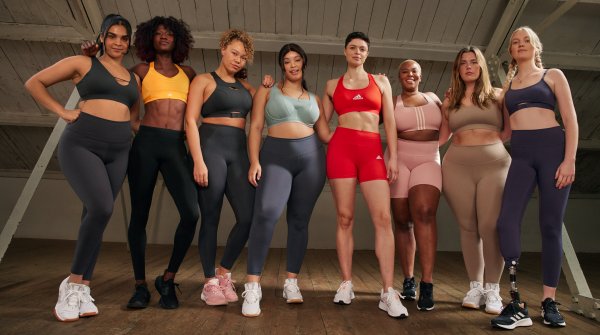
Even passionate sports fans are not immune to contracting Covid-19. However, initial studies now show a correlation between physical inactivity and more frequent severe courses of the disease.
A team of researchers led by Robert E. Sallis from the Kaiser Permanente Fontana Medical Center in California came to the conclusion in their study of 48,440 adult Covid 19 patients that those who exercise regularly are less likely to suffer severe courses of the disease.
In times of global lockdowns and lack of mobility due to the coronavirus, not only physical but also psychological consequences are threatening. According to sports scientists Prof. Dr. Niels Nagel and Anna Lisa Martin-Niedecken, these can express themselves in various ways:
- Fears
- stress
- Decreasing cognitive performance
- higher prevalence of mental illnesses
Sports scientist Prof. Ingo Froböse also warns that banning club and mass sports produces "the sick of the future". The World Health Organization (WHO) reiterated in its 2020 guidelines that exercise and sport in children and adolescents "improve physical, mental and cognitive health."
Even after surviving a Covid 19 disease, secondary damage can occur that, among other things, limits athletic performance. According to the Society for Orthopaedic Traumatological Sports Medicine (GOTS), the following symptoms have been observed in athletes even after mild courses:
- pathological fatigue
- reduced performance
- neurological deficits
- problems with the heart
According to this, around 40 to 50 percent of Covid 19 sufferers continue to exhibit one or more symptoms, i.e. "Long COVID", three to six months or longer after the disease.
Individual sports such as running, mountain climbing, hiking or biking are safe if the distance rules are followed.
"99.9 percent of Covid 19 infections occur indoors. So I would strongly support openings for sports. Sports are healthy, sports are good for you - and it motivates people to get out of indoor spaces. It gets them out into the fresh air. Because one thing we know for sure: it's the indoor spaces where we catch our cold," Scheuch said in an interview with the DFB.
The evaluation of more than 232,000 cases of corona in Ireland by the Health Protection Surveillance Centre (HPSC) proves him right: according to this, only 262 transmissions were detected in the fresh air, half of which were during sports and fitness activities, which therefore only account for 0.05 per cent of the cases investigated.
Outdoors, aerosol researchers also consider the risk to be low. "Game forms, duels, i.e. quite normal team training are possible without any problems. Small groups and training strictly at a distance don't make sense," Dr. Scheuch said. "Let people, especially kids, kick again."
It's a little different with indoor sports. Here it depends heavily on the size of the crowd and the quality of the ventilation.
The German Industry Association for Fitness and Health (DIFG) pointed out that the Robert Koch Institute, which is responsible for combating the pandemic in Germany, does not mention fitness studios and sports facilities as places of infection.
An expert opinion by Prof. Dr. Henning Wackerhage of the Technical University of Munich also comes to the conclusion that fitness studios not only contribute little to the incidence of infections in Germany, but on the contrary are beneficial for keeping the population healthy.
This is all the more true because fitness studios have introduced protective measures with their hygiene and safety concept, with which guests are effectively protected from infection.
Here the experts are divided. While Dr. Scheuch also believes school sports in appropriate halls are feasible, Dr. Anthony Fauci, medical advisor to the U.S. president, warned that in the spring of 2021, increased corona clusters in U.S. schools originated in school sports.
"We found that it's the team sports where kids are coming together, obviously many without masks, that are driving the numbers up - not the prevalence in the classroom," Fauci told ABC. The Centers for Disease Control and Prevention (CDC) also came to the same conclusion in March 2021.
Reducing the risk is something like regular on-site rapid testing in schools, which can detect corona cases and prevent clusters from growing larger.
There are several ways to do this, depending on the sport. The CDC recommends the following measures:
- In contact sports, individual training sessions are recommended, for example, to improve technical skills rather than group activities involving physical proximity.
- In team sports, smaller training groups with the same number of people are recommended in order to minimize the number of contacts.
- Particularly strenuous training sessions are best carried out in the fresh air.
- Full contact, e.g. in martial arts or ball sports, should be avoided during training.
- If indoor sports, then in sufficiently large halls with adequate ventilation and filter systems. Open windows and doors improve air circulation.
- Even though the virus spreads mainly through the air, sports equipment should not be shared. If not avoidable, they should be cleaned and disinfected.
- Off the field, distance rules should be observed and a mask should be worn.
The safest way to watch major sporting events is to watch them at home on TV or online with members of your household. The CDC has compiled a risk overview for attending sporting events.
In summary, outdoor events are less risky for spectators than indoor events. The greater the distance to the event location and the poorer the hygiene and distance rules are followed there, the higher the risk. In addition, the risk of infection increases, for example, when spectators cheer and sing.
In the US, where the vaccination campaign has already made considerable progress, more and more sports leagues and teams have recently announced their intention to play future home games in full stadiums again - such as the Philadelphia Eagles' football team.
Thanks to the hygiene and testing regimes that have proven themselves in professional sports over the past year, some major events could be held without major corona clusters. The successful Champions League final tournament in the summer of 2020 and the return of major leagues such as the NBA, NFL, NHL, Premier League or Bundesliga to play under hygiene regulations were also encouraging factors.
Nevertheless, the challenge for the European Football Championship is a special one: For the first time, the tournament will be held pan-European in eleven cities across Europe. Complete isolation of the participating teams will thus be almost impossible. After the last international football matches in March, there was already an increase in the number of corona virus cases among the players.
In order to ensure that the participating teams can play in the event of corona cases, UEFA has increased the permitted squad size from 23 to 26. Players in the squad who fall ill or have to be quarantined before the start of the tournament can be replaced by a player nominated later. Goalkeepers may even be called up during the tournament.
The strict testing regime at the European Championship and the progress made in the vaccination campaigns also give hope that there will be few infections. The Italian national team, for example, wants to have the entire squad vaccinated in time for the European Championship.
Fans at most venues will only be allowed into the stadiums if they have a negative Corona test or proof that they have been fully vaccinated.
The Olympic Games from 23 July to 8 August and the subsequent Paralympics in Tokyo are somewhat different from the European Football Championships. Thousands of athletes from all over the world will come together in Japan for this - including dozens of indoor disciplines.
The organizers have therefore implemented strict rules for all participants: Daily coronatests are mandatory, as well as the restriction of their own activities in the Olympic village. In addition, the Olympians are only allowed to arrive five days before the start of their competitions and must leave a maximum of two days after the end of the competition.
As a role model and dress rehearsal for indoor team sports at the Games, the World Handball Championship in Egypt in January 2021 was under particular scrutiny. It is true that three teams there had to withdraw their team before or during the tournament due to corona cases. However, feedback from participating federations on the bubble of athletes around the tournament was ultimately positive.
Also questionable is the progress of vaccinations among Olympians: Germany has been vaccinating its roughly 1,400 athletes and support staff for the Olympics since early May. But there is not yet clarity everywhere about the vaccination of Olympic starters before the Games. Vaccine manufacturer BioNTech/Pfizer has announced that the vaccine will be supplied to Olympic and Paralympic delegations by the end of May.
It has been certain since March, however, that only Japanese ticket holders will be seated in the stands. Fans from abroad will be denied access.
- ISPO awards
- Mountain sports
- Bike
- Design
- Retail
- Fitness
- Health
- ISPO Job Market
- ISPO Munich
- ISPO Shanghai
- Running
- Brands
- Sustainability
- Olympia
- OutDoor
- Promotion
- Sports Business
- ISPO Textrends
- Triathlon
- Water sports
- Winter sports
- eSports
- SportsTech
- OutDoor by ISPO
- Heroes
- Transformation
- Sport Fashion
- Urban Culture
- Challenges of a CEO
- Trade fairs
- Sports
- Find the Balance
- Product reviews
- Newsletter Exclusive Area
- Magazine







